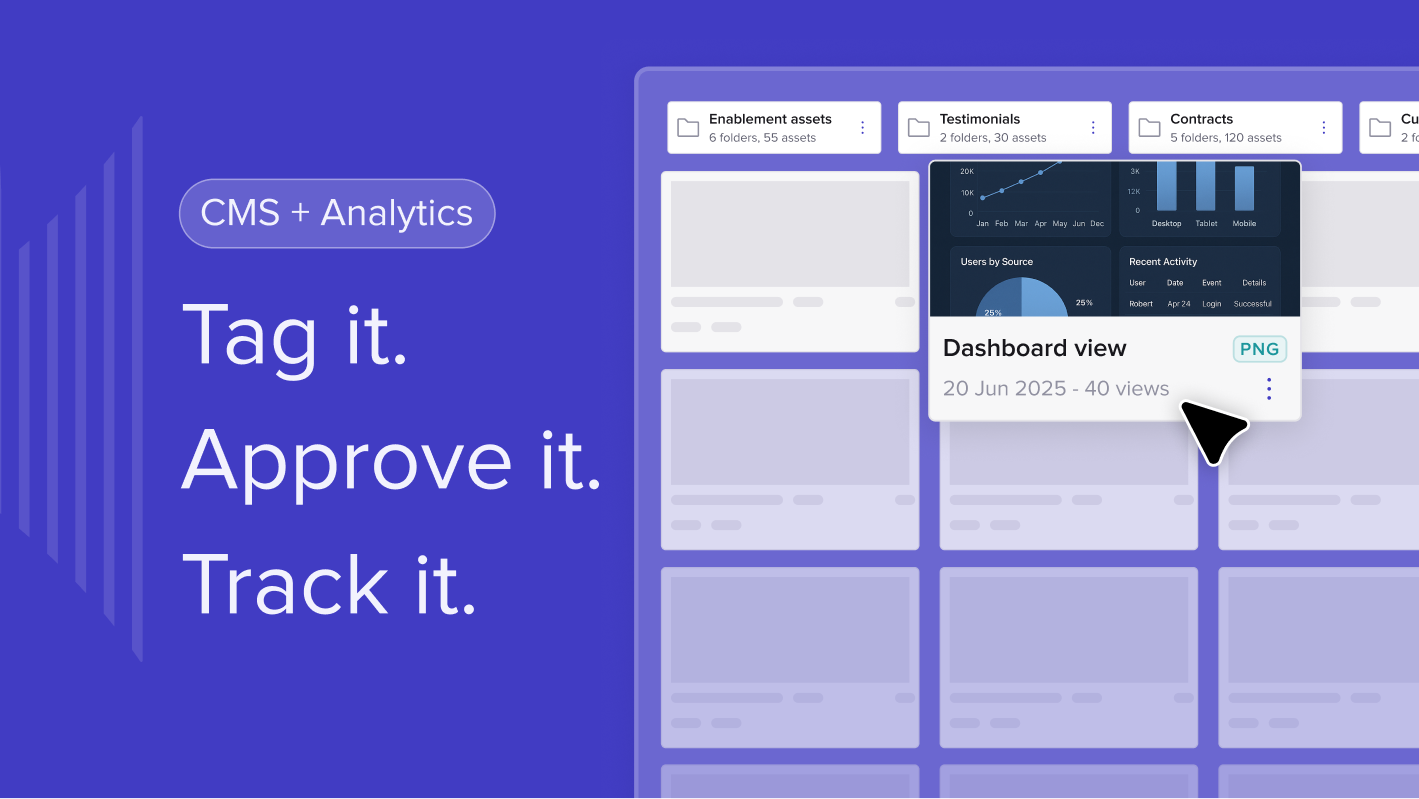Closing sales is about asking the right questions. If you're not actively trying to learn about your prospects – their needs, goals, and pain points – how can you work to meet their expectations?
Except, you don't want your call to turn into an interrogation. According to Forbes, the optimum number of questions on a call is between 11-14. That's just enough to find out the crucial information but not too much that you're bombarding your lead.
Not only does this help you understand a prospect, but it also builds an emotional rapport that could carry into a long and lucrative relationship.
In this article, we explore:
- Definition of sales discovery
- How to structure a sales all
- Key sales discovery questions you need to ask
What is sales discovery?
Sales discovery refers to the questions a professional asks a prospect on a call to determine whether they're interested in their product or service. A good salesperson knows that asking the right questions (in the right order) can help:
- Discover a prospect's driving factors
- Identify reservations before they surface
- Assess the suitability of your offering
- Highlight needs your prospect may be unaware of
Unless you ask the right sales questions, you risk missing key information or failing to discover if you're a good fit for the client.
Think of it like a doctor's consultation. When you visit the doctor, you have a problem or a goal. The doctor asks you questions to discover the problem, delving deeper to understand what's happening. They'll then diagnose the condition and prescribe a solution. However, the best doctors also discover your thoughts on different options and advice on medication side effects.
Just the same: your sales discovery call should aim to identify your client's pain points, company history, and current problems and then advise on how you can help fix the issue.
Ho to structure a sales call
Big to small, broad to specific – this principle is the backbone of an effective sales call structure. Here's a breakdown of how to implement this approach:
1. Establish connection and rapport
Warm introductions are always welcome. Don't get straight to business. Learn about their location, the weather, or a recent event. It's a chance to humanise the interaction and maybe learn a little about your prospect's personality.
2. Set the agenda
After the pleasantries, deliver a brief overview of what you'll cover. Doing so sets clear expectations and gives the prospect an idea of how long the call will take.
3. Begin with open-ended sales questions
Never go straight in with the yes or no questions. Your opening gambit should be a series of general sales discovery questions about their business, industry, and overarching challenges.
4. Transitions to specific discovery questions
Once you've got a broader understanding, start narrowing down to the specific issues and needs of the prospect. Ask about daily operations, identify pain points, and find out what tools or solutions they use.
5. Introduce your product or service
Now's the time to introduce the solution: your product or service. Use their words and pain points to link to your brand's offerings. You should always frame everything you talk about from the client's point of view.
6. Address objections and concerns
Unless you've struck gold, they won't be immediately convinced (especially B2B buyers). Clarify any reservations or concerns they might have, even offering to provide further written information about the call.
7. Summarise and close
Depending on where you are in the sales cycle, the next step could be a follow-up call, product demo, or a sale. Never leave a call open-ended. Be clear about what happens next and get them to verbally agree.
That's it! Now, end on a positive note and thank them for their time. Following this approach feels organic and remains productive. It also creates a structure that projects competence and confidence.
20 Sales discovery questions you should ask
Sales discovery isn't just about asking questions; it's a clearly structured process. Your questions should guide the prospect toward your final goal. To help, we've split the questions into four broad sections:
- Learn the Basics
- Probe for Insights
- Identify Deal breakers
- Plot a Path Forward
Learn the basics:
In the opening portion of the conversation, after your initial greeting, use your open-ended sales questions. Learn as much as possible about the company, what they do, their success, etc. You'll also want to find out who you're speaking to. After all, you want to speak to the person who'll be making the buying decision.
- Based on my research, your company does X. Could you elaborate a bit more?
- What are your daily responsibilities in your role?
- What key metrics are crucial for your success?
You'll want to quantify how much your product or service can help. Raw numbers stick in a client's mind. For that, you'll want to establish a baseline by determining what metrics the company uses to measure its success.
Probe for insights:
Once you've gathered your background information, transition the call to the specifics. You want to learn:
- What their problem or goal is
- How much they can afford to spend
- When the solution needs to be ready
- Who is responsible for making the decisions
In this section, you'll focus on the first point, leading into the following two (disqualifying) points in the third section, before moving on to the final point in the closing section.
Can you share your primary goals for this quarter/year?
Again, while more specific than earlier, it's still a broad opening question. You want them to tell you their issues in their own words.
- When are you aiming to achieve these objectives?
- What challenges are you currently facing to reach these goals?
- In terms of [specific area related to your product], do you encounter any specific issues?
As the conversation progresses, the questions are becoming more particular. Technically, this is a yes-no question. However, if you leave sufficient silence, it should prompt the prospect to explain the issues they're having.
- Can you pinpoint the source of this problem?
- Why is addressing this issue a priority now?
There's always a reason why customers choose now to contact you and not earlier. Perhaps a previous vendor failed them, or the problem has recently worsened. Think back to the doctor's appointment: usually, we book a consultation when a new symptom appears or an old one worsens.
Have you attempted any solutions in the past? What were the outcomes?
Identify deal breakers:
Any sales discovery call is a two-way street. Like a job interview, you should be evaluating whether you want them as a client as much as they're evaluating you. If they don't have the budget or expect an unachievable timeline, then proceeding isn't worth your time.
- Are there any barriers you foresee in implementing a solution?
- What's your expected timeline for addressing this challenge?
- Do you have a dedicated budget for this?
- Where does the funding come from, and is there an "executive sponsor" involved?
An executive sponsor is a high-level employee responsible for the project and its success. That could be a project manager, the person you're speaking to, or even the business owner. Understand who's managing the budget, be it a single person, department, or entire company.
Plot a path forward:
Still want to proceed? Welcome to the close – it's time to find out the nitty-gritty of how to make the sale.
Who will be part of the decision-making process?
"Speak to the organ grinder, not the monkey." Not to put it too bluntly, but if you're doing your best sales pitch to someone who isn't making the buying decision, then you're not the one making the pitch; they will be. Ensure you get a chance to speak to the person responsible and learn how the decision-making process works.
- Do you have any criteria in place for choosing a solution or vendor?
- Have you explored or used similar products in the past?
- Are you also considering other vendors or solutions?
You want to know if you're facing competition. However, be careful how you say this question, as you don't want to sound defensive.
- Once a solution is finalised, what's the procurement process?
- Can we set a follow-up date to discuss this further?
A successful call means you've got a clear set of steps to follow. Don't hang up the phone with any uncertainties; schedule another call to cover any final points – and ensure a decision-maker is on the next call.
Closing thoughts
Remember, every prospect is unique. While these 20 sales discovery questions provide a robust framework for most discovery calls, always be flexible. Listen more than you speak, adapt based on the feedback, and always strive to foster genuine connections.
Want to amplify your sales process? Revolutionise your approach with Trumpet. Experience the difference of a solution built to empower sales teams, creating better rapport and smoother buyer journeys. Dive into a harmonised buyer experience with our tailored tools.
Discover trumpet today and ensure you're always in tune with your prospects. Schedule a demo now!

.svg)
.svg)
.svg)
.svg)
.svg)
.svg)
.svg)
.svg)
.svg)
.png)
.svg)
.svg)
.svg)
.svg)

.svg)
.svg)
%201.svg)
.svg)
%201.svg)



.svg)






















![How to Get Started with Buyer Enablement [With Examples]](https://cdn.prod.website-files.com/65cf4fecbed2754c2236665d/65cf4fecbed2754c22366bdb_65a5af83e742f76e34ce06f3_Customer%2520Onboarding%2520_%2520Everything%2520you%2520need%2520(2).png)
.png)



.png)



.png)









.png)


.png)

.png)
.png)







